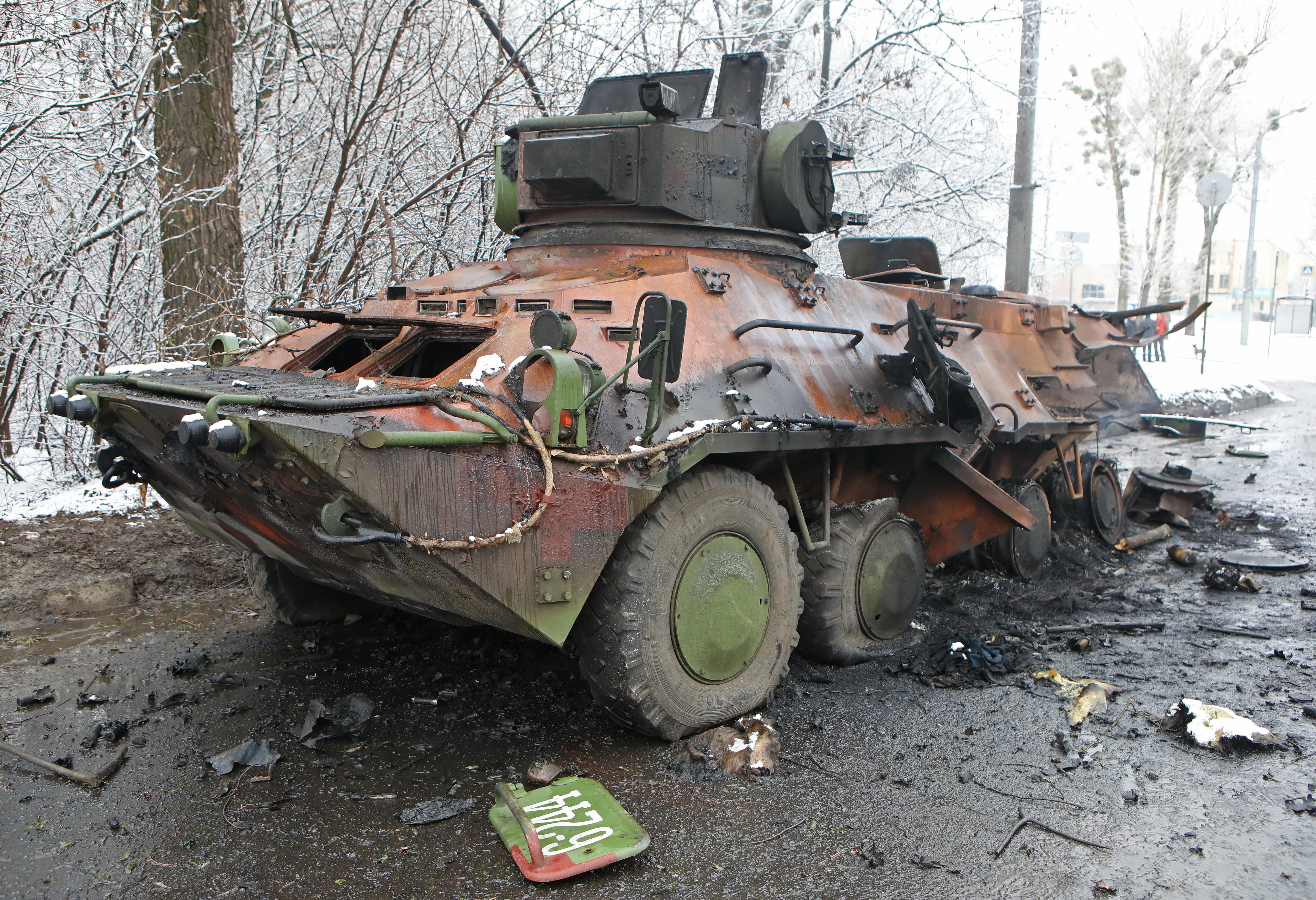Watching the War: Ukrainians resist, West triggers SWIFT sanctions
Russia vs. Ukraine. The war in Ukraine is escalating, with Russian troops now fighting Ukrainian soldiers in Kharkiv, the country’s second-largest city. Meanwhile, in the battle for the capital, Kyiv, the Ukrainians have so far resisted the Russian onslaught, but the mayor says Russian troops have surrounded the city. While President Vladimir Putin no doubt hoped to declare a swift victory, Ukrainian forces are giving him a run for his money. As former CIA chief David Petraeus told Ian Bremmer: “If [Ukrainian forces and partisan brigades] want to put up resistance, it would be a very difficult situation for the Russians.” Russia has roughly 50,000 troops involved, or two-thirds of its massed forces, but US defense officials warned Sunday that Putin has more combat power up his sleeve.
Ukrainian President Volodymyr Zelensky said Sunday that he’s accepted an invitation by Belarusian strongman — and Putin ally — President Alexander Lukashenko to hold peace talks “without conditions” at the Belarusian border. Neither Zelensky nor Putin will attend, and it’s hard to see what kind of negotiated settlement both sides could accept: Russia attacked Ukraine unprovoked and clearly has grand territorial aspirations, while Zelensky said just last week he was unwilling to cede sovereign territory to the Russians, and he’s leaving the door open to NATO membership. Depending on how the talks go, Belarus could also send troops into Ukraine as soon as Monday, according to a US intelligence official.
The West vs. Russia. This weekend, the US and its allies further tightened the screws on Russia’s economy. First, they announced they would trigger the (economic) nuclear option of excluding some Russian banks from the SWIFT financial messaging platform, stifling their ability to do business with foreign clients. Second, the allies pledged to block Russian central bank foreign currency reserves held by Western financial institutions — a move that would virtually wipe out more than half of Putin’s $640 billion war chest overnight (the rest is mostly in gold kept in Russia and in yuan held by Chinese banks).
The EU announced on Sunday that it’s taking the unprecedented step of financing the purchase of arms for a country in conflict by pledging to buy weapons for Ukraine. Chancellor Olaf Scholz also reversed a longtime German policy on not supplying deadly weapons to countries at war by agreeing to send Ukraine 1,000 anti-tank weapons and 500 surface-to-air missiles. Scholz also plans to raise Germany’s annual defense spending to 2% of GDP, something US and NATO leadership have been encouraging for years. These are the latest signs that the Russian invasion has resulted in the most unified NATO we’ve seen since the Cold War.
In response, Putin on Sunday ordered the Russian military to put its nuclear forces on “special alert” to counter NATO’s “aggressive statements.” While this doesn’t mean Moscow intends to use nukes in the conflict, the move raises the stakes for miscalculation and allied intervention.